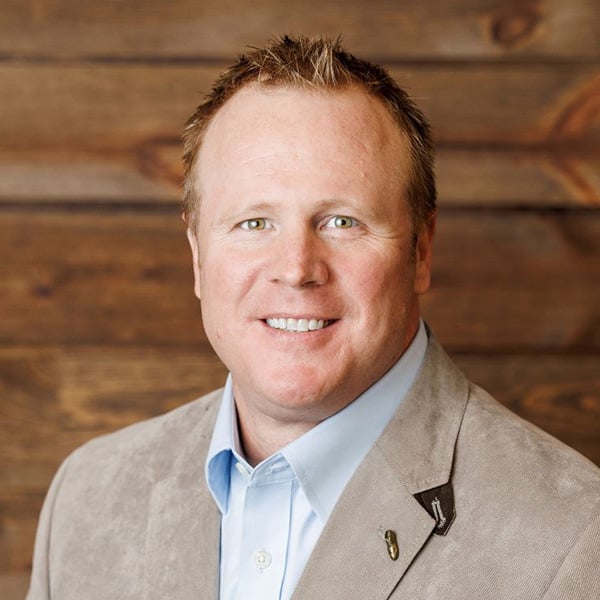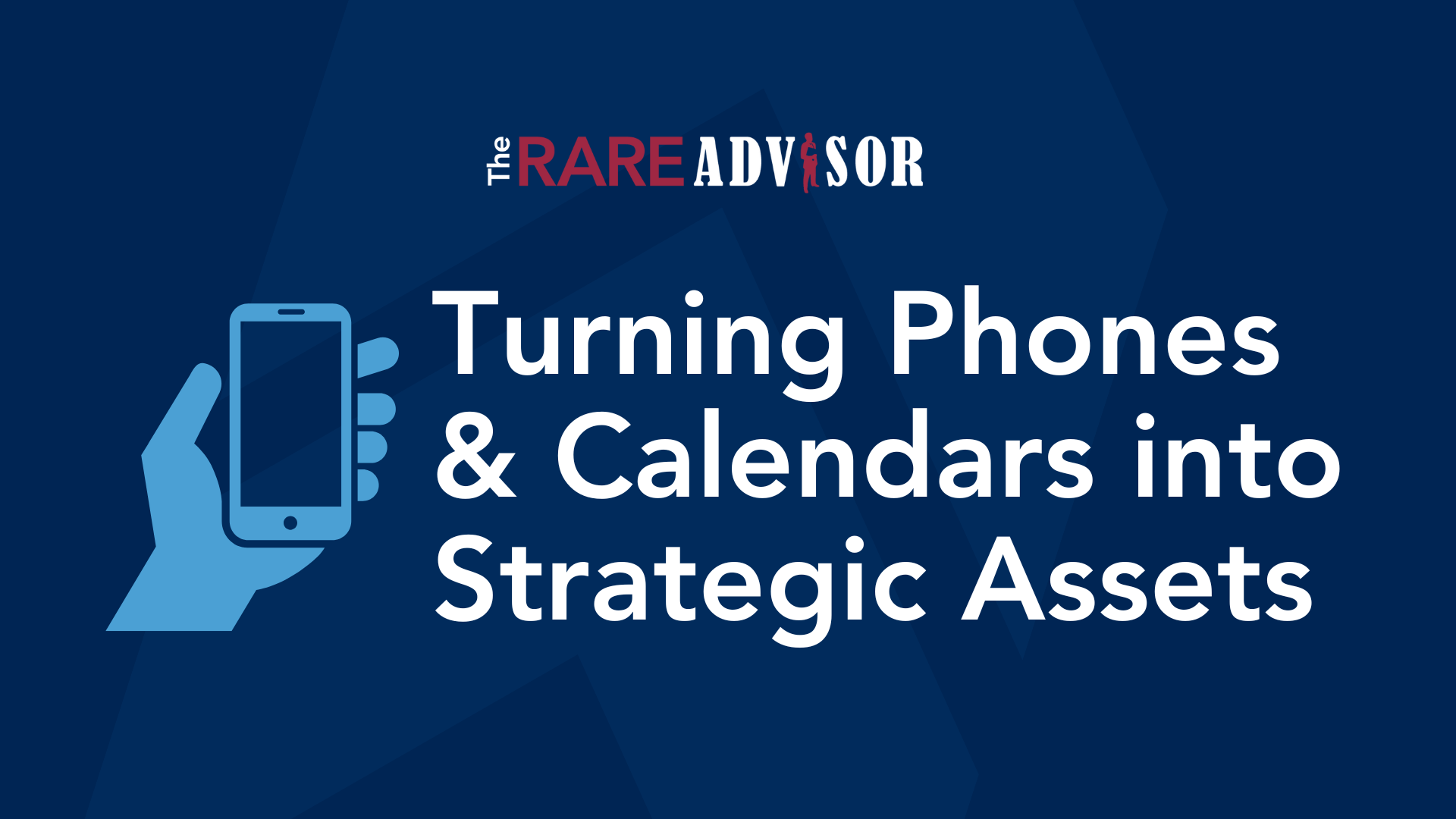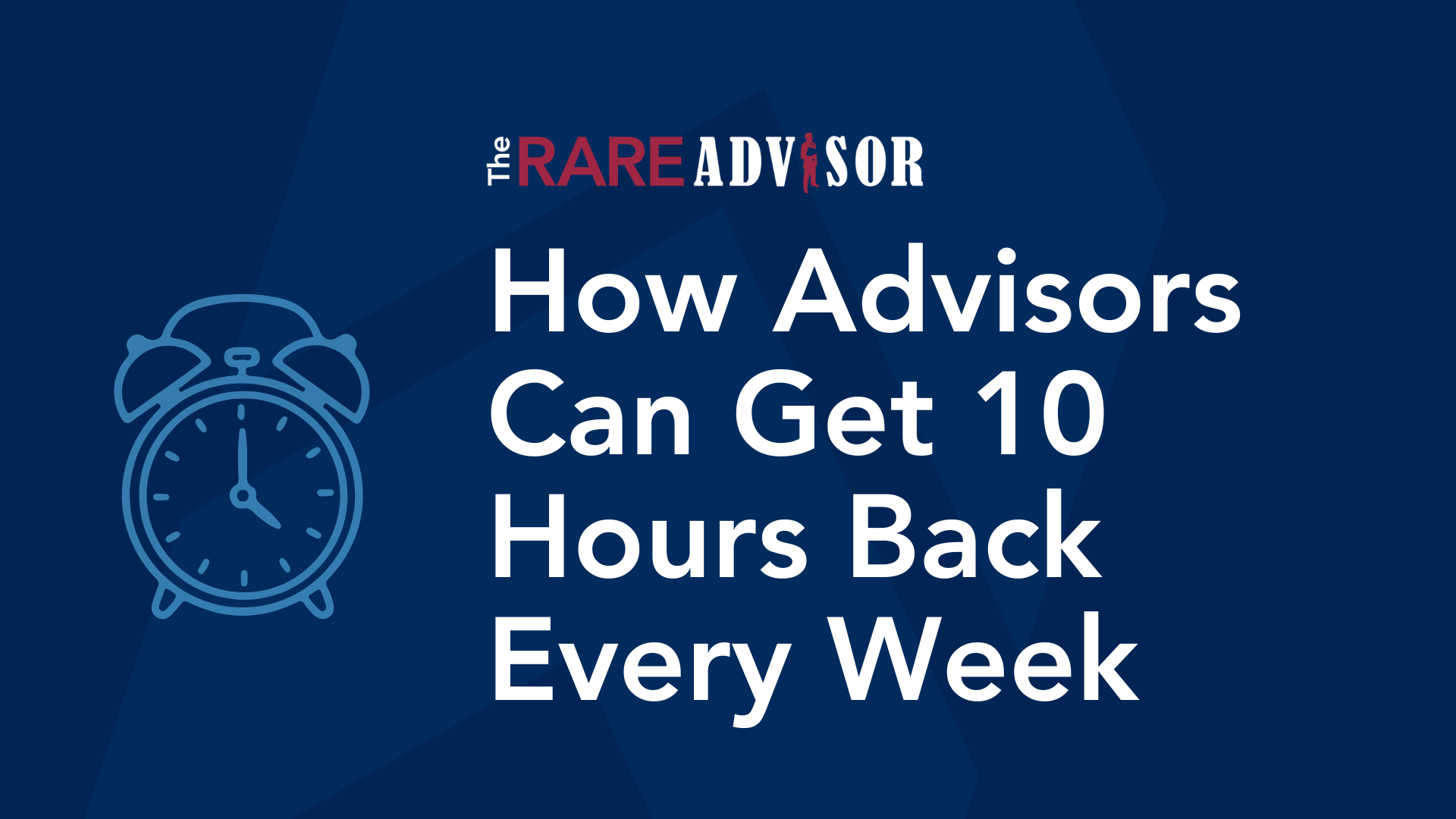Succession Planning for Financial Advisors: Is Your Firm’s Future Being Ignored?

As a financial advisor, you’re the master of helping clients prepare for every milestone – retirement, inheritance, selling a business, etc. But when it comes to your own future, how much time have you spent preparing for what’s next?
More specifically, do you have a plan for what happens to your firm when you decide to hang up your “advisor hat” for good? Who will take over ownership? Do you partially retire? Whether you envision an outright exit, gradual transition, or partial retirement, having a solid succession plan is crucial for:
- Protecting your legacy and life’s work.
- Ensuring your clients are in good hands.
- Aligning your professional goals with personal ones.
As a savvy financial advisor, you’ve no doubt preached the importance of having a plan to countless clients over the years. But there’s one area where many in our industry seem to take a “do as I say, not as I do” approach: succession planning for their own businesses.
There’s an interesting phenomenon that happens to many entrepreneurs: they stop doing for themselves the very thing they now do for clients. It’s referred to as Cobbler’s Children Syndrome after the proverbial children of shoemakers who don’t have shoes. It’s far more common than you’d think, so don’t feel bad if you fall into this category. But while you shouldn’t feel bad, you should take action.
The stats don’t lie – the financial advisor industry is aging, with an average financial advisor now reaching 57 years old (JD Power, 2022). This trend highlights the importance of succession planning as many financial advisors near retirement age. While more advisors are taking the steps towards succession, research from Smart Asset shows a gap: roughly 56% without a plan say they’ll create one sometime in the future, and a staggering 44% have no intentions of transitioning their firms.
Of course, there are understandable hurdles that can make succession planning feel overwhelming:
- Lack of urgency for those that feel they’re still years from retirement.
- Emotional barriers to handing off your life’s work.
- Uncertainty about ideal successors or buyers of your firm.
But as an Investment News article put it, the “retiring in place” approach that some advisors take often comes at the expense of client service quality. Your clients deserve a transition plan that protects their interests.
The truth is that this planning step is important regardless of your age. Whether you are in the building phase of your practice or own an established firm, the need for “what if” planning is important – for the same reasons you encourage your younger clients to consider the importance of life and/or disability insurance. Succession planning is not just for those who plan to exit their business in the near future. It is for every financial professional.
The good news? Getting the right strategy together around succession and laying the groundwork early can be done. And having that solid plan can bring you confidence and security, just like what you strive to deliver for your clients.
Setting up the right succession plan option, whether internal or external or a combination of both, requires you to define your goals. Ask yourself:
- What is your vision for your firm post-succession?
- How long do you want to work as a business owner?
- What requirements need to be met in order for you to retire?
- What would happen to your family and your clients upon your death or disability?
This is your life’s work. For many advisors, the practice they have built is their biggest asset. Just like you wouldn’t neglect your home or retirement account, don’t neglect the value you’ve built in your business.
Get ahead of the curve now. Whatever your path for succession looks like, it’s a path that needs to be defined.
Looking for some simple steps to get started?
- Get a valuation on your business. USA Financial provides a general estimate of this utilizing our Advisor Blue Book tool. While it’s not a formal valuation, it’s a great starting point, and it’s a valuable piece of information regardless of how far away “retirement” might be for you.
- Plan for the “what-ifs?” If you don’t have other advisors within your practice, identify other advisors in the area that you are philosophically aligned with that you could potentially strike a deal with.
- Work with your RIA and/or Broker-Dealer to ensure that you understand what happens to your accounts and continuing commissions/fees in the event of death or disability.
- It goes without saying but revisit your life/disability insurance needs to provide peace of mind to your loved ones.
- If you have additional licensed advisors in your office, formulate a transition plan to ensure you maximize the value of the practice you’ve built for your heirs.
- Once you’ve established your continuity plan, communicate it with your clients. This gives them the confidence to know that their plan won’t be disrupted and that you practice what you preach.
In short, appreciate all that you have built. It’s more than just an income stream – treat it as a business with value.
If you’re interested in learning more about how we help advisors plan for their future, join us at an upcoming Predictable Practice or Discovery Day event. We enjoy the process of turning income producers into business builders.
Author Info

Mark Mersman is the Chief Marketing Officer at USA Financial, joining the firm in 2004. He has held numerous roles within the company prior...
Related Posts

Access by Design: Turning Phones and Calendars into Strategic Assets
In this episode of The RARE Advisor, host Aaron Grady and practice management consultant Allan Oehrlein continue their discussion on time allocation by exploring what comes next: operationalizing structure across the entire advisory team. They break down why the phone is the “front door” to the firm and the calendar is the “engine room,” and how elite practices use standardized phone scripts, the strategic power of the word “unavailable,” intentional scheduling rules, and team empowerment to build consistency, capacity, and trust. Aaron and Allan outline how designed access—not unlimited access—creates scalability and a stronger client experience, while reducing reactivity, burnout, and advisor bottlenecks. They also offer practical challenges advisors can implement immediately to redesign their phone and scheduling processes in ways that elevate both team culture and enterprise value.

The Psychology Behind Your CTA: Why Prospects Don’t Click “Book a Call”
In this episode of Financial Advisor Marketing Playbook, Mark Mersman breaks down the real psychological barriers that stop prospects from clicking “book a call” on an advisor’s website—and how small language and design changes can dramatically improve conversions. You’ll learn practical, compliant fixes including softer CTA language, expectation statements, empathy‑based messaging, simplified design, and reassurance techniques that lower emotional friction. If you want a website that encourages prospects to take the first step confidently, this episode delivers actionable guidance advisors can implement immediately.

How Advisors Can Get 10 Hours Back Every Week
In this episode of The RARE Advisor, host Aaron Grady and USA Financial Pareto coach and Practice Management Consultant Allan Oehrlein dive into time allocation as a core lever for advisory success. They unpack the biggest time drains—email, unsolicited calls, and open-door interruptions—and lay out a practical framework for calendar rebalancing that starts with personal time, management time, client appointments, dedicated communications windows, “work on the business” time, and high-impact growth activities. With real-world stories showing how advisors shift from reactive days to structured weeks (and even reclaim Fridays), Aaron and Allan share easy-to-implement tips: color coding calendars, scheduling buffers, daily huddles, and call/appointment protocols. If you’re ready to audit your calendar, define your ideal week, and create structure that truly liberates your practice, this conversation is your next step.

Access by Design: Turning Phones and Calendars into Strategic Assets
In this episode of The RARE Advisor, host Aaron Grady and practice management consultant Allan Oehrlein continue their discussion on time allocation by exploring what comes next: operationalizing structure across the entire advisory team. They break down why the phone is the “front door” to the firm and the calendar is the “engine room,” and how elite practices use standardized phone scripts, the strategic power of the word “unavailable,” intentional scheduling rules, and team empowerment to build consistency, capacity, and trust. Aaron and Allan outline how designed access—not unlimited access—creates scalability and a stronger client experience, while reducing reactivity, burnout, and advisor bottlenecks. They also offer practical challenges advisors can implement immediately to redesign their phone and scheduling processes in ways that elevate both team culture and enterprise value.

The Psychology Behind Your CTA: Why Prospects Don’t Click “Book a Call”
In this episode of Financial Advisor Marketing Playbook, Mark Mersman breaks down the real psychological barriers that stop prospects from clicking “book a call” on an advisor’s website—and how small language and design changes can dramatically improve conversions. You’ll learn practical, compliant fixes including softer CTA language, expectation statements, empathy‑based messaging, simplified design, and reassurance techniques that lower emotional friction. If you want a website that encourages prospects to take the first step confidently, this episode delivers actionable guidance advisors can implement immediately.

How Advisors Can Get 10 Hours Back Every Week
In this episode of The RARE Advisor, host Aaron Grady and USA Financial Pareto coach and Practice Management Consultant Allan Oehrlein dive into time allocation as a core lever for advisory success. They unpack the biggest time drains—email, unsolicited calls, and open-door interruptions—and lay out a practical framework for calendar rebalancing that starts with personal time, management time, client appointments, dedicated communications windows, “work on the business” time, and high-impact growth activities. With real-world stories showing how advisors shift from reactive days to structured weeks (and even reclaim Fridays), Aaron and Allan share easy-to-implement tips: color coding calendars, scheduling buffers, daily huddles, and call/appointment protocols. If you’re ready to audit your calendar, define your ideal week, and create structure that truly liberates your practice, this conversation is your next step.

